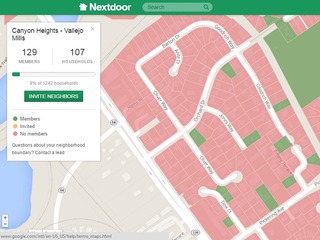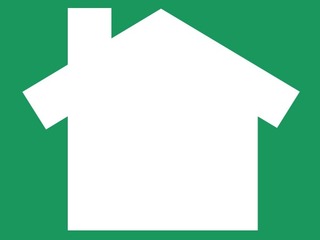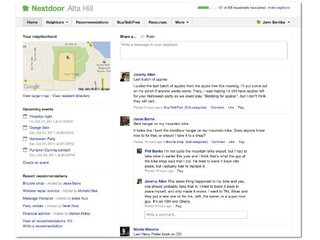DUOS expands AI capabilities to help seniors apply for assistance programs
It will complete and submit forms, and integrate with state benefit systems
Read more...
Editor's Note: Our annual Vator Splash Spring 2016 conference is around the corner on May 12, 2016 at the historic Scottish Rite Center in Oakland. Speakers include Nigel Eccles (CEO & Co-founder, FanDuel, Andy Dunn (Founder & CEO, Bonobos), Mitch Kapor (Founder, Kapor Center for Social Impact); Founders of NextDoor, Handy, TubeMogul; Investors from Khosla Ventures, Javelin Venture Partners, Kapor Capital, Greylock, DFJ, IDG, IVP and more! Join us! REGISTER HERE.
If there's one thing you can count on is that, no matter how great something is, somebody, somewhere, is going to misuse it. They will figure out a way to take that thing and make it nefarious in some way, just because they can. It's just human nature, I guess.
In some ways, social networks are ground zero for such bad behavior, with issues of cyberbullying happening all the time.
When it comes to Nextdoor, the social network built around bringing together people who live in the same neighborhood, the problem is even worse. The network has, unfortunately, been used as a way to racially profile people in certain neighborhoods, most particularly in Oakland.
The problem came to light in January, after a report in the San Francisco. A group called Neighbors for Racial Justice had been able to lobby Oakland city officials, including Councilwoman Annie Campbell Washington, to meet with company to discuss the potential issue after racially insensitive posts had been found on the site.
A few days later, NextDoor unveiled new features including a form for posting criminal activity to neighbors, with prompts that they should lead with criminal behavior and include detailed descriptions; a racial profiling flag with feedback from the member who flagged the post; a mandatory warning screen that instructs members to “focus on behavior, not appearance” when initially posting in the Crime & Safety section; and training and education for Neighborhood Leads on the issue of racial profiling.
The company also explicitly prohibited racial profiling in its guidelines.
"Racial profiling or discrimination of any kind is antithetical to this mission. It has been incredibly painful to hear that some of the messages neighbors are posting on Nextdoor are having a negative impact on people’s lives," Nextdoor wrote.
"Even though these kinds of conversations are rare, even one occurrence is too many – and we are committed to ending this destructive behavior on Nextdoor. We will continue to work on ways to educate members about what racial profiling is, why it is harmful, and how it will always be unacceptable on Nextdoor."
Deeper problems in Oakland
Abuse on social media is not new, as I mentioned above, but the issues on Nextdoor go beyond anonymous bullying. They bring potential problems into the real world, and this incident in particular highlighted the sometimes difficult relationship between tech companies and the neighborhoods they claim to serve.
Late last year, Uber, which is the highest valued startup in the world, announced that it is coming to Oakland, buying the Sears building, for a total of 330,000 square feet of space. The Sears building can house 3,000 employees, and this move would allow Uber to possibly become Oakland's largest employer that isn’t a government agency or medical center.
While many people I spoke to were postivite about the move, there was still some trepidation, even from people within the tech scene, that such a move might be harmful to the people who live there, some of who may be displaced if their rent suddenly shoots up as a result, or if goods and services begin to filter into the neighborhood which are too expensive for the residents afford.
Uber's move has a racial component to it as well. Oakland's population is 28 percent African-American. As we've seen in many diversity reports, the big tech companies are still mostly white. That means that the people who are going to be working at Uber's office in Oakland, some of whom would potentially come to live in the neighborhood, are not going to look like many who already do. That could cause some major conflicts.
How those potential issues are dealt with, of course, will depend on the actions taken by both sides.
While it's on Uber to make sure that they integrate into the neighborhood, and don't expect the neighborhood to change to accomodate them, Bart Garrett, Lead Pastor at Christ Church and the founder of Project Peace, told me at the time that it was also up to Oakland residents to demand that Uber do things that benefit the neighborhood, including hiring people who live there.
"The Bay Area loves entrepreneurs and cultural creatives and innovators. We are a start-up culture and this is inspiring! The flip side is that we are anti-institutional and anti-establishment. So, when these start-ups get too big and institutionalize, we protest and revolt," he said.
"I love it that we protest and revolt—but, perhaps, rather than protesting any and all business coming into Oakland we can level our revolt against inhumane, inequitable practices they might incorporate."
Perhaps the company could can take a page from Twitter, which announced in 2014 that it was going to build a $1 million homeless learning shelter, called The NeighborNest, directly across the street from its headquarter headquarters at the Essex Fox Plaza.
This may seem like a separate issue from what Nextdoor is dealing with, but it's all one and the same. That company, like Uber, has a responsibility to protect the people it serves and to make sure that they are not made to feel unsafe, or unwelcome, as a result.
When Sarah Leary, Founder and CMO of NextDoor, sits down with Vator CEO Bambi Francisco at Splash Spring in May, this would be a great topic for them to discuss.
VatorNews reached out to Nextdoor for additional comment. We will update this story if we hear back.
(Image source: nextdoor.com)
It will complete and submit forms, and integrate with state benefit systems
Read more...The bill would require a report on how these industries use AI to valuate homes and underwrite loans
Read more...The artists wrote an open letter accusing OpenAI of misleading and using them
Read more...Startup/Business
Joined Vator on
Nextdoor (www.nextdoor.com) is a private social network for the neighborhood. Using Nextdoor’s free online platform, neighbors create private neighborhood websites where members can ask questions, get to know one another and exchange local advice and recommendations. Nextdoor is specifically designed to provide a trusted environment for neighbor-to-neighbor communication. Hundreds of neighborhoods are already using Nextdoor to build happier, safer places to call home.
Based in San Francisco, California, Nextdoor was founded in 2010 by Internet veterans who have spent their careers creating thriving online communities.



